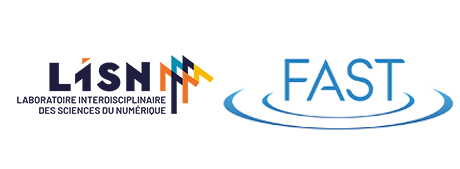
The interaction of waves with a mean flow is a fundamental and longstanding problem in fluid mechanics. The key to the study of such an interaction is the scale separation, whereby the length and time scales of the waves are much shorter than those of the mean flow. The wave-mean flow interaction has been extensively studied for the cases when the mean flow is prescribed externally—as a stationary or time-dependent current (a "potential barrier"). In this talk, I will describe a new type of the wave-mean flow interactions whereby a short-scale linear wave is incident on a evolving large-scale nonlinear dispersive hydrodynamic state: a rarefaction wave or a dispersive shock wave (DSW). Modulation equations are derived for the coupling between the wavepacket and the mean flow in the nonlinear dispersive hydrodynamic state. These equations admit particular classes of solutions that describe the transmission or trapping of the linear wave by an unsteady hydrodynamic state. Two adiabatic invariants of motion are identified in both cases that determine the transmission, trapping conditions and show that wavepackets incident upon smooth expansion waves or compressive, rapidly oscillating DSWs exhibit so-called hydrodynamic reciprocity. The developed theory is general and can be applied to a broad class of nonlinear dispersive wave equations in various physical contexts including nonlinear optics and cold atom physics. The Korteweg-de Vries equation will be considered as a concrete example. This is joint work with Gennady El and Mark Hoefer, and the talk is based on recent paper [1]. [1] T. Congy, G. A. El and M. A. Hoefer, Interaction of linear modulated waves with unsteady dispersive hydrodynamic states, arXiv:1812.06593.